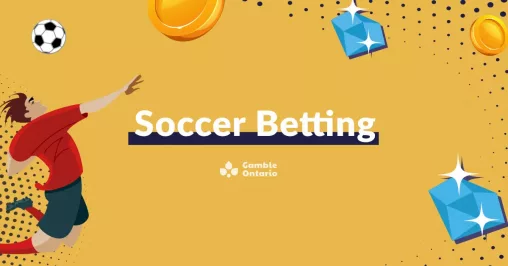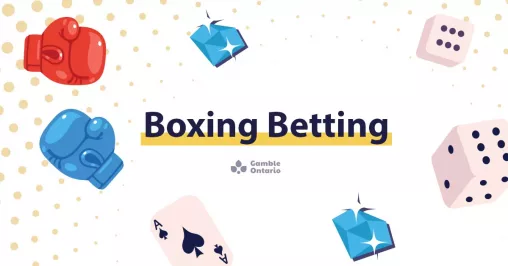How to Understand Horse Betting Odds? – Expert Guide & Tips
In this horse betting odds guide, we are going to explain horse racing betting odds and offer pointers for a successful betting strategy.
Horse racing is one of the most popular and exciting sports to place a bet on in the world. It is hard to beat the thrill of cheering your horse to victory, and going to a race meeting can be a great social occasion for people.
But horse racing is also a world so filled with jargon that it can be bewildering for the beginner. What do all the numbers mean? How much will the bet cost me? How much money could I actually win?
Betting Odd Types
Horse racing odds are based on the expected probability of a horse winning a race.
It would be easier if every country and every betting platform used the same odds format.
But there are different types of betting odds, and we will guide you through the most common forms.
Fractional Odds
Fractional betting odds are denoted by a fraction, i.e. two numbers separated by a slash. For example, 2/1, 9/2, 33/1, and 100/1 are all fractional odds.
While they can be confusing for the beginner, they are designed to allow you to calculate your potential winnings relative to your stake.
The number on the left is how much you will win, and the number on the right is how much you will need to stake to win this amount.
For example, if you bet on a horse at odds of 6/1, you will win $6 for every $1 you stake. So, if you stake $5, you will win $30. This is if the horse wins!
Let’s try a trickier example. If you bet on a horse at the odds of 9/2, you will win $9 for every $2 you stake. So, if you stake $4, you will win $18.
Decimal Odds
Whereas fractional odds indicate how much you can win (i.e. the profit you could make), decimal odds indicate your total payout: your profit plus the return of your stake.
For example, you place a bet on a horse at 7.2. This means that you will receive $7.20 for every $1 you stake on the horse. So, if you stake $5, you will receive $36 (7.2 x 5.00).
By including the stake in the return, decimal odds can be easier to understand and calculate your potential winnings.
For example, the fractional odds of 9/4 in decimal odds is 3.25, which tells you that for every $1 you stake, you will get a total return of $3.25.
American Odds
Also called Moneyline odds, American odds are either positive or negative and understanding this distinction is important.
Positive Figures
If the odds are positive, it means that the odds quoted are how much you will win for a $100 bet.
For example, if the odds on a horse are +150, it means that you will make a profit of $150 for a $100 bet.
To compare this to fractional odds, 4/1 in American odds is +400.
Negative Figures
If the odds are negative, it means that the odds quoted are how much you will need to bet to win $100.
For example, if the odds on a horse are -150, it means that you need to bet $150 to mean $100.
Betting on a horse with a negative figure in American odds is the same as betting on a horse who is odds-on in fractional odds (i.e. who is rated as more likely than evens to win).
For example, betting on a horse at American odds of -200 is the same as betting on a horse at fractional odds of 1/2. In both cases, to win $1, you need to bet $2.
Even Odds
Where there can be confusion with American odds is when the horse is at even odds. Even odds can be quoted as +100 or -100, depending on how bookmakers display their prices. But both of these figures equate to the same profit.
Comparison of Different Odds Types
A good way to understand these different odds types is to compare them. While they each represent their odds in different fashions, they are all a guide to the probability of horses winning and the potential payout.
Here is an odds conversion table with some common prices as a means of comparison:
Horse Racing Bet Types
There are many betting types for a bettor, and the number of options can be overwhelming. But we will go through each one to make your choice easier:
Win Bet
This is the simplest bet you can place. If you pick the winner of the race, you win money. But if you pick a loser in the race, you lose money.
For example, you bet $5 on a horse at odds of 2/1. There are two possible outcomes to this bet.
Your selection wins: you make a profit of $10 and get your $5 wager back as well.
Your selection loses: you lose your $5 wager.
Place Bet
This is a bet for a horse to be placed.
What does place mean? You can think of it like finishing on the podium (the gold, silver and bronze winners).
Your horse might not win the race, but if it finishes in the top 2, 3 or 4, depending on the numbers in the race, you can still make money.
The number of places offered depends on the number of runners. The general rule of thumb is:
- 1-4 runners: no place – win only bets allowed
- 5-7 runners: 1st and 2nd place only
- 8-15 runners: 1st, 2nd and 3rd place
- 16+ runners: 1st, 2nd, 3rd and 4th place
Let’s take an example of a punter wagering a $5 place bet on a horse at odds of 12/1 in a race of 16 runners.
If the bookmaker offers four places and your horse finishes in fourth place, you win money. But how much?
Generally, bookmakers will offer 1/4 of the odds for this bet. In other words, you will get 25% of 12/1, which is 3/1.
Therefore, your profit is $5 x 3/1: $15.
Exacta Bet
The exacta bet, also called a straight forecast, is predicting the horses to finish in first and second place.
The snag is that you can pick the two horses to fill the top 1st and 2nd, but you lose if you get the order wrong.
Therefore, punters often pay double to do a reverse exacta, also called a combination forecast, which means that you win if your two horses are 1st and 2nd in any order.
The payouts on an exact bet can only be calculated after the race is finished and will vary widely.
Generally, the bigger the odds of the two horses in your exacta bet, the bigger your profit.
Trifecta Bet
The trifecta bet is very similar to the exacta bet, except you also need to predict the horse to finish third.
As with the exacta bet, you need to get the order exactly right. Customers often play the combination trifecta, which costs more to place but allows your three selections to finish in any order.
Superfecta Bet
The superfecta bet is picking the first four finishers of a race in the correct order. This is usually very difficult to do, so the payout can be large sums.
What Factors to Consider When Placing Bets
Here is my list of things to consider when placing bets on horse races.
1. Horse Form and Performance
Perhaps the most important factor when considering placing a bet on a horse is its recent form and performance.
Horses aren’t machines and have good and bad days. By studying the form of a horse, we can get a decent gauge of the level of their ability.
And, like humans, horses can progress and regress, so paying particular attention to their most recent form is prudent.
2. Jockey and Trainer Performance
There is a long debate to be had over the difference a jockey will make to a horse’s chances.
It doesn’t matter, for instance, how good the jockey is if the horse is way below the required ability to win a race.
But horse racing is often about tiny fractions, and a good jockey, particularly one riding with confidence, can be a big asset.
Perhaps more important than jockeys, though, is the trainer.
For a number of reasons, stables can go through good and bad patches of form, and it is important for bettors to be attuned to this.
Similarly, trainers tend to have better results at certain tracks, and this should also be considered.
3. Track and Weather Conditions
Track conditions are often vital to how a horse performs.
While some horses are equally effective on a variety of surfaces, some horses, often due to their knee action, have a strong preference for slower or quicker ground.
For example, some horses can perform equally well on turf as they can on dirt, while others are much happier on one surface over another.
The same equally applies to racecourses. Some courses, for example, have tight turns and shorter straights that don’t always suit horses with long, galloping strides.
Successful Betting Strategies and Handicapping
Take a look at these horse racing betting tips that have proved to be successful in the past.
Value Betting
An obvious strategy is to bet on the favourite of every race because, theoretically, they have the best chance of winning.
But in the long-term, this isn’t always the best strategy and finding the best value can lead to the best payoffs.
Think about, for example, if Person A backed five Evens favourites in succession and Person B backed five horses at 5/1 in the same races.
While Person A should have the better chance of picking winners, they will need to pick the winner in 3 out of the 5 races to make a profit.
In contrast, Person B only needs to pick the winner in 1 out of the 5 races to make their money back, and two winners or more will provide a handsome profit.
In the long term, it can pay to have wagers at bigger odds.
Handicapping
If every horse raced at the same weight in every race, there would be more consistent results, but this would not necessarily translate to better excitement or value for punters.
Handicapping, much like its golf betting equivalent, allows horses of varied ability to race competitively against each other via an allocation of weight.
Bettors studying a handicap race are looking for horses which they think could be better than their handicap rating, and this is where value can often be found in horse racing odds.
Expert’s Conclusion on Horse Racing Betting Odds
Understanding horse racing odds allows you to make more informed predictions about how a horse might run, i.e. its chance of winning the race. Maybe you don’t agree with their predictions. Maybe you think a horse has a better chance of winning than their odds suggest. In this way, you have understood the odds and found what you think is a good value bet.
Common Betting Mistakes to Avoid
- Not shopping for the Best Odds: the huge popularity of online betting means that there is more choice for bettors than ever before. It is always important to shop around to find the bookmaker offering the best odds on the horse you would like to place a bet on.
- Chasing Losses: You’ve had a bad day and can’t seem to pick a single winner. But you just need one winner to get back on track. You deserve a winner! This is the wrong attitude to take when gambling. Chasing losses can lead to heavy losses.
FAQs About Horse Racing Betting Odds
Here are some of the most frequently asked questions we receive at GambleOntario.ca about horse racing betting odds.
What is the difference between a win and a place bet?
A win bet is a bet on the winner of the race. Pick the winner, and you win money. Pick a loser, and you lose money. Whereas a place bet is a bet on a horse to be placed, which is usually 1st, 2nd and 3rd place.
How do I know if a horse is a good bet?
Having a good knowledge of horse racing and betting odds can increase your chances of winning.
What does it mean if a racing horse is ‘odds on’?
This means that bookmakers think it has a greater than 50/50 chance of winning and offer odds to reflect this. In fractional odds, a horse who is odds-on is priced at less than Evens. For example, 4/6, 1/2, 5/6 or 1/3. This means that your profit will be less than your stake. Bet $6 on a horse at 4/6, and you win $4.
What factors affect horse racing betting odds?
There are a large number of factors that affect horse racing betting odds. The size of the field, the ability of the horses, the jockey’s recent form, the trainer’s recent form…to name just a few.
Our Readers’ Top Picks in July


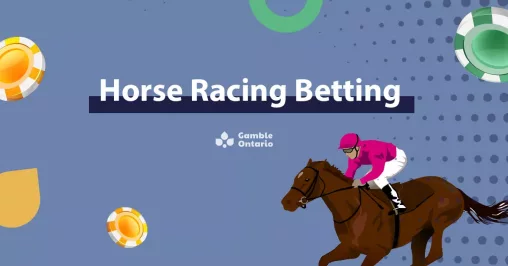



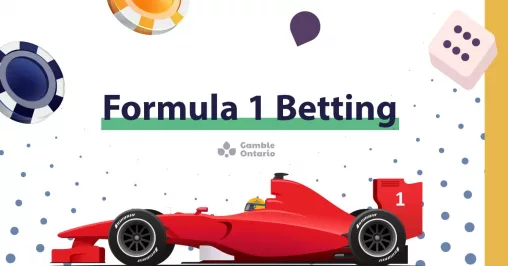

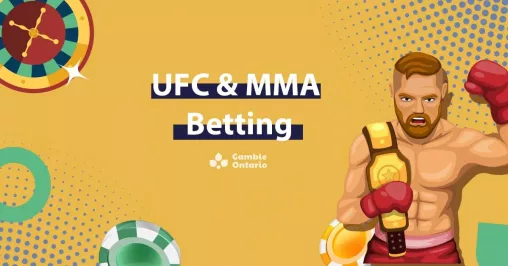



Eamon is an experienced sports journalist specializing in horse racing betting with over 7 years of expertise. He enjoys focusing on Canadian horse races and writing articles that provide readers with betting insights to maximize their profits. Eamon advocates betting on long-shot outsiders and utilizing alternative markets for a more significant return on investment.







